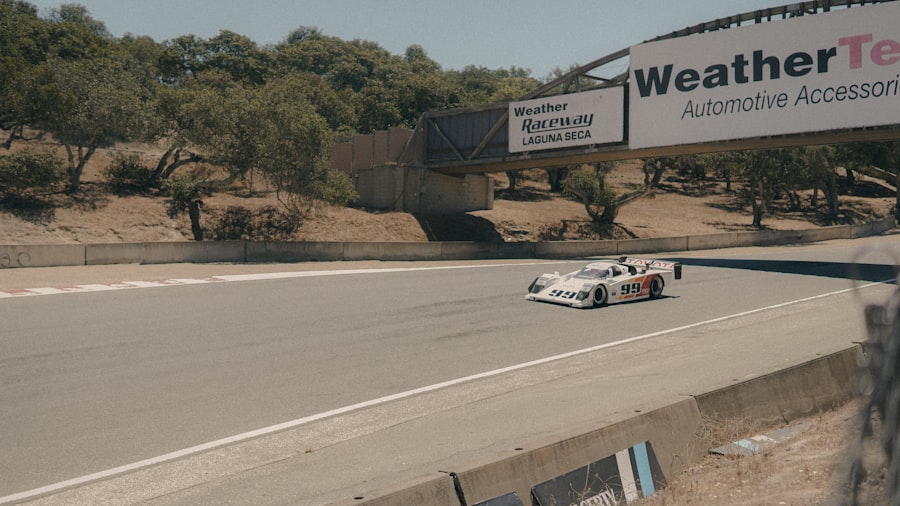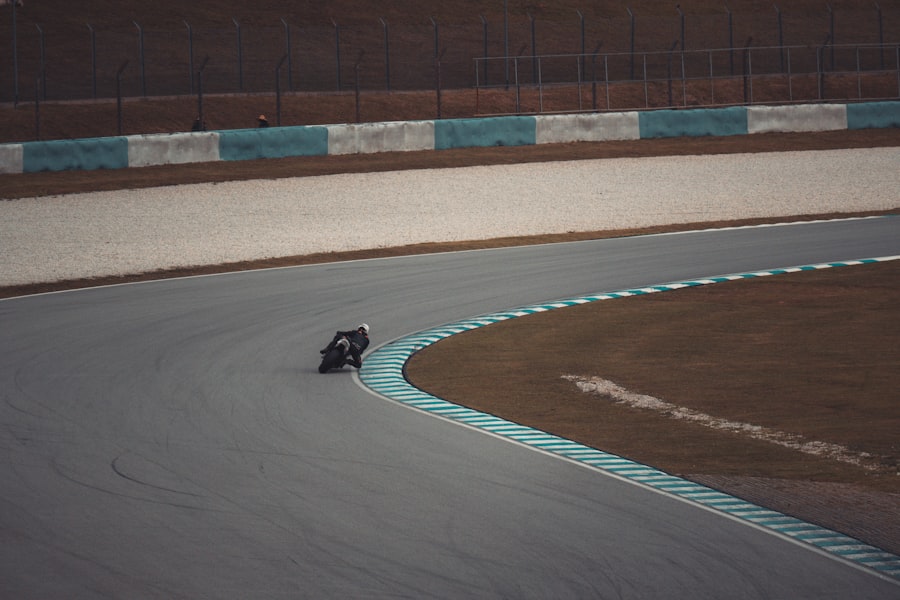Motorsport marketing is a dynamic and exhilarating field that combines the thrill of high-speed racing with the strategic intricacies of brand promotion. This unique sector not only captivates fans with its adrenaline-fueled events but also serves as a powerful platform for brands to connect with a passionate audience. The world of motorsport is characterized by its diverse range of events, from Formula 1 and NASCAR to rally racing and endurance competitions, each offering distinct marketing opportunities.
The excitement of the races, coupled with the loyalty of fans, creates an environment ripe for innovative marketing strategies that can elevate brands to new heights. In motorsport marketing, the stakes are high, and the competition is fierce. Brands are not just looking to advertise; they aim to create memorable experiences that resonate with fans.
This can involve everything from sponsoring a team or driver to creating immersive fan experiences at race events. The integration of technology has further transformed this landscape, allowing for real-time engagement through apps, social media, and interactive content. As a result, motorsport marketing professionals must be adept at leveraging these tools to craft compelling narratives that engage audiences and enhance brand visibility.
Key Takeaways
- Motorsport marketing requires a blend of creativity, communication, and industry knowledge.
- Key skills include branding, sponsorship management, digital marketing, and networking.
- Career opportunities range from team marketing roles to sponsorship coordination and digital content creation.
- Social media and digital platforms are crucial for fan engagement and brand promotion in motorsport.
- Building strong industry connections and staying updated on trends are essential for career growth.
Skills and Qualifications Needed for Motorsport Marketing Jobs
To thrive in the competitive arena of motorsport marketing, individuals must possess a unique blend of skills and qualifications. A foundational understanding of marketing principles is essential, as professionals need to develop strategies that align with both the goals of their organization and the interests of fans. This includes knowledge of market research, consumer behavior, and brand management.
Additionally, familiarity with the specific nuances of motorsport—such as the various types of racing, key players in the industry, and the regulatory environment—can provide a significant advantage. Beyond academic qualifications, practical experience is invaluable in this field. Many successful professionals in motorsport marketing have backgrounds in sports management, communications, or business administration.
Internships or entry-level positions within racing teams, promotional agencies, or event management companies can provide hands-on experience that is crucial for understanding the industry’s inner workings. Furthermore, skills in digital marketing, data analytics, and social media management are increasingly important as brands seek to engage audiences through online platforms. The ability to analyze data and derive insights can help marketers tailor their strategies to maximize impact.
Career Paths and Opportunities in Motorsport Marketing

The career paths available in motorsport marketing are as varied as the sport itself. Entry-level positions often include roles such as marketing assistants or coordinators, where individuals can gain exposure to various aspects of marketing campaigns and event management. As professionals gain experience, they may progress to roles such as marketing managers or brand strategists, where they are responsible for developing comprehensive marketing plans that align with team or sponsor objectives.
For those looking to specialize further, opportunities exist in areas such as sponsorship activation, where professionals work directly with brands to maximize their investment in motorsport. This can involve creating promotional events, managing hospitality programs, and ensuring that sponsors receive adequate visibility during races. Additionally, roles in digital marketing are becoming increasingly prominent as teams and sponsors seek to engage fans through social media and online content.
Positions such as social media managers or digital content strategists focus on creating engaging online experiences that resonate with fans and drive brand loyalty.
The Importance of Branding and Sponsorship in Motorsport Marketing
| Metric | Description | Example Value | Impact on Motorsport Marketing |
|---|---|---|---|
| Brand Awareness Increase | Percentage increase in brand recognition after sponsorship | 35% | Enhances visibility and recall among motorsport fans |
| Audience Reach | Number of viewers and attendees exposed to the brand | 50 million+ per season | Expands market penetration and potential customer base |
| Engagement Rate | Interaction rate with branded content during events | 12% | Drives fan interaction and loyalty |
| Return on Investment (ROI) | Effectiveness of sponsorship spend in generating revenue | 4:1 | Measures financial success of branding efforts |
| Brand Recall | Percentage of fans who remember the brand post-event | 70% | Indicates lasting impression and marketing effectiveness |
| Social Media Mentions | Number of times the brand is mentioned during race events | 150,000+ | Boosts online presence and viral marketing |
| Customer Acquisition | New customers gained through motorsport sponsorship | 15,000+ | Direct impact on sales and market growth |
Branding and sponsorship are at the heart of motorsport marketing, serving as critical components that drive revenue and fan engagement. The relationship between teams and sponsors is symbiotic; while teams rely on sponsorships for funding and resources, brands leverage the visibility and prestige associated with motorsport to enhance their image and reach new audiences. Successful branding in this context requires a deep understanding of both the sport and the target demographic.
Brands must align their messaging with the values and passions of motorsport fans to create authentic connections. Sponsorship deals can take many forms, from traditional logo placements on cars and uniforms to more innovative partnerships that involve experiential marketing initiatives. For instance, brands may host fan engagement activities at race events or create interactive digital content that allows fans to connect with their products in meaningful ways.
The effectiveness of these sponsorships is often measured through metrics such as brand awareness, customer engagement, and sales conversions. As such, motorsport marketers must be adept at analyzing these metrics to demonstrate the value of sponsorship investments to stakeholders.
The Role of Social Media and Digital Marketing in Motorsport
In recent years, social media and digital marketing have revolutionized how motorsport engages with fans. Platforms like Twitter, Instagram, Facebook, and TikTok have become essential tools for teams and sponsors to communicate directly with their audience. These channels allow for real-time updates during races, behind-the-scenes content, and interactive fan experiences that were previously unimaginable.
The immediacy of social media enables brands to respond quickly to fan inquiries or capitalize on trending topics related to races or drivers. Digital marketing strategies also encompass a wide range of tactics beyond social media. Email marketing campaigns can keep fans informed about upcoming events or promotions, while targeted online advertising can reach specific demographics based on their interests and behaviors.
Additionally, content marketing plays a crucial role in storytelling; teams can share compelling narratives about their drivers, technology innovations, or race strategies that captivate audiences. The integration of video content—such as race highlights or driver interviews—further enhances engagement by providing fans with visually appealing material that they can easily share within their networks.
How to Network and Build Connections in the Motorsport Industry

Networking is a vital component of building a successful career in motorsport marketing. The industry is relatively niche, which means that personal connections can significantly impact job opportunities and career advancement. Attending industry events such as races, trade shows, or motorsport conferences provides invaluable opportunities to meet professionals from various sectors within the industry.
Engaging in conversations with team members, sponsors, and fellow marketers can lead to potential collaborations or job referrals. In addition to attending events, leveraging online platforms like LinkedIn can help individuals expand their professional network. By connecting with industry leaders and participating in relevant groups or discussions, aspiring marketers can gain insights into industry trends while showcasing their expertise.
Building relationships with mentors who have experience in motorsport marketing can also provide guidance and open doors to new opportunities. Ultimately, cultivating a robust network requires ongoing effort; maintaining relationships through regular communication can lead to long-term professional benefits.
Tips for Landing Your Dream Job in Motorsport Marketing
Securing a position in motorsport marketing often requires a combination of strategic planning and proactive efforts. One effective approach is to tailor your resume and cover letter specifically for each application, highlighting relevant experiences that align with the job description. Demonstrating a genuine passion for motorsport—whether through personal involvement in racing activities or extensive knowledge of the sport—can set candidates apart from others.
Additionally, gaining practical experience through internships or volunteer opportunities can significantly enhance your employability. Many teams and organizations offer internships that provide hands-on experience in various aspects of marketing and event management. Even if these positions are unpaid or part-time, they can serve as stepping stones toward full-time roles by allowing individuals to build their skills and expand their networks within the industry.
Finally, staying informed about industry trends and developments will not only enhance your knowledge but also demonstrate your commitment to potential employers.
The Future of Motorsport Marketing: Trends and Innovations
As technology continues to evolve at a rapid pace, the future of motorsport marketing is poised for significant transformation. One notable trend is the increasing use of data analytics to inform marketing strategies. Teams and sponsors are leveraging data collected from fan interactions—both online and offline—to gain insights into consumer preferences and behaviors.
This data-driven approach allows for more targeted marketing efforts that resonate with specific audience segments. Moreover, advancements in virtual reality (VR) and augmented reality (AR) are beginning to reshape fan experiences in motorsport. These technologies enable immersive experiences that allow fans to engage with races in new ways—whether through virtual pit tours or interactive simulations of race scenarios.
As these innovations become more mainstream, they will likely play a crucial role in attracting younger audiences who seek engaging digital experiences. In conclusion, the world of motorsport marketing is an exciting blend of strategy, creativity, and passion for racing. With its unique challenges and opportunities, it offers a rewarding career path for those willing to immerse themselves in this fast-paced industry.
As technology continues to advance and fan expectations evolve, professionals in this field must remain adaptable and forward-thinking to stay ahead of the curve.



